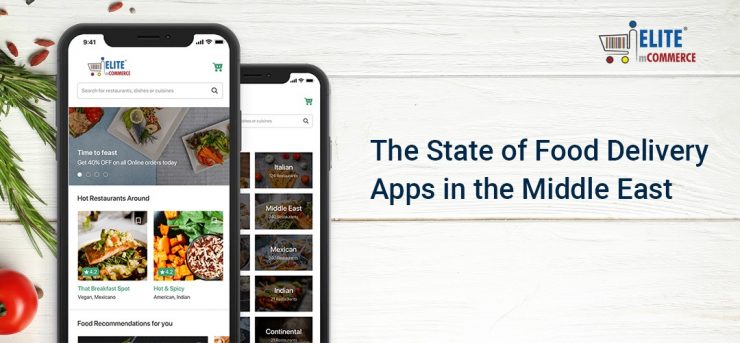Online delivery apps are becoming a force in the food and beverage industry, but numerous players are still battling to determine who will hold market share, and nearly all large companies in the industry have failed to make a profit. In the Middle East, both home-grown and international app companies have seen struggles before and during the coronavirus pandemic, which has left a mark on many countries.
According to a 2018 report, 86% of restaurants in the United Arab Emirates already took advantage of ordering apps, and 32% reported that more than a quarter of their income came from delivery. Several major industry players or their subsidiaries are active in the Middle East, including Zomato and Talabat, which are both owned by German-headquartered Delivery Hero. Delivery Hero’s market share was an estimated 65% in Saudi Arabia and 75% in Turkey, according to Statista.
Some well-known names in the growing industry have failed to take hold in the region due to fierce competition. Uber Eats, one of the largest food delivery apps in the world, shut down its service in Egypt, Saudi Arabia, and the UAE after judging it unlikely to become the number one or two competitor in the market in those countries. However, Careem NOW, a subsidiary of Uber, continues to operate, though its business is struggling in some places: in Jordan, its 5,000 drivers were restricted from operating due to health concerns. Spain-based Glovo also abandoned the Middle East due to its inability to match the competition already present in the region.
As restaurants struggle to stay open to delivery and takeout while their dine-in options are closed by government order, frustration over high commissions from delivery aggregators has caused restaurants to ask for relief. Talabat’s CEO refused calls by restaurant industry leaders to cut the commissions in April to help struggling restaurants who are barely staying open, though Careem did reduce them by 15% for the time being. More recently, Talabat did agree to waive their additional delivery fees calculated based on the customer’s distance from the restaurant, but it and other companies continue to take large commission fees.
A Dubai-based company called Chatfood responded to frustration from local restaurants over commissions as high as 35% from delivery aggregators by creating a site where local restaurants could provide direct ordering, charging a monthly subscription instead of commissions. Over 1000 restaurants have joined the service within months. Lowering prices for consumers and letting them order directly from the restaurants they love can drive eaters to buy directly, and the technology to set up new apps is more available than ever.
Read Also: Step up to improve Customer Curbside Pick-up Experience
Another significant competitor is Deliveroo, which focuses heavily on adding a logistics component to its food delivery marketplace to help restaurants set up a successful delivery option as well as positioning drivers using data to ensure delivery in under 30 minutes. It charges a low fee for delivery to customers and takes a commission per order from restaurant partners. Deliveroo has been rising in revenue and boasts 45,000 daily users. However, the company has recently agreed to take hundreds of millions in investment from Amazon, saying that the funding is necessary to avoid collapse.
Like many parts of the world, the Middle East’s online food delivery industry is fiercely competitive and unstable, with major companies struggling to make a profit even as restaurants feel they charge too much. Restaurants are not limited to relying on the delivery aggregation companies, and can launch their own app much more easily than in the past, allowing them to avoid high commissions, gain more control over their menu, and stay accountable for their deliveries. Change is still coming to the industry, with new companies entering the market, others leaving or being bought out, and varied business models being tested. Even as the market for delivery grows, the restaurants of the region have made their dissatisfaction with the present state of the industry known.









Add comment